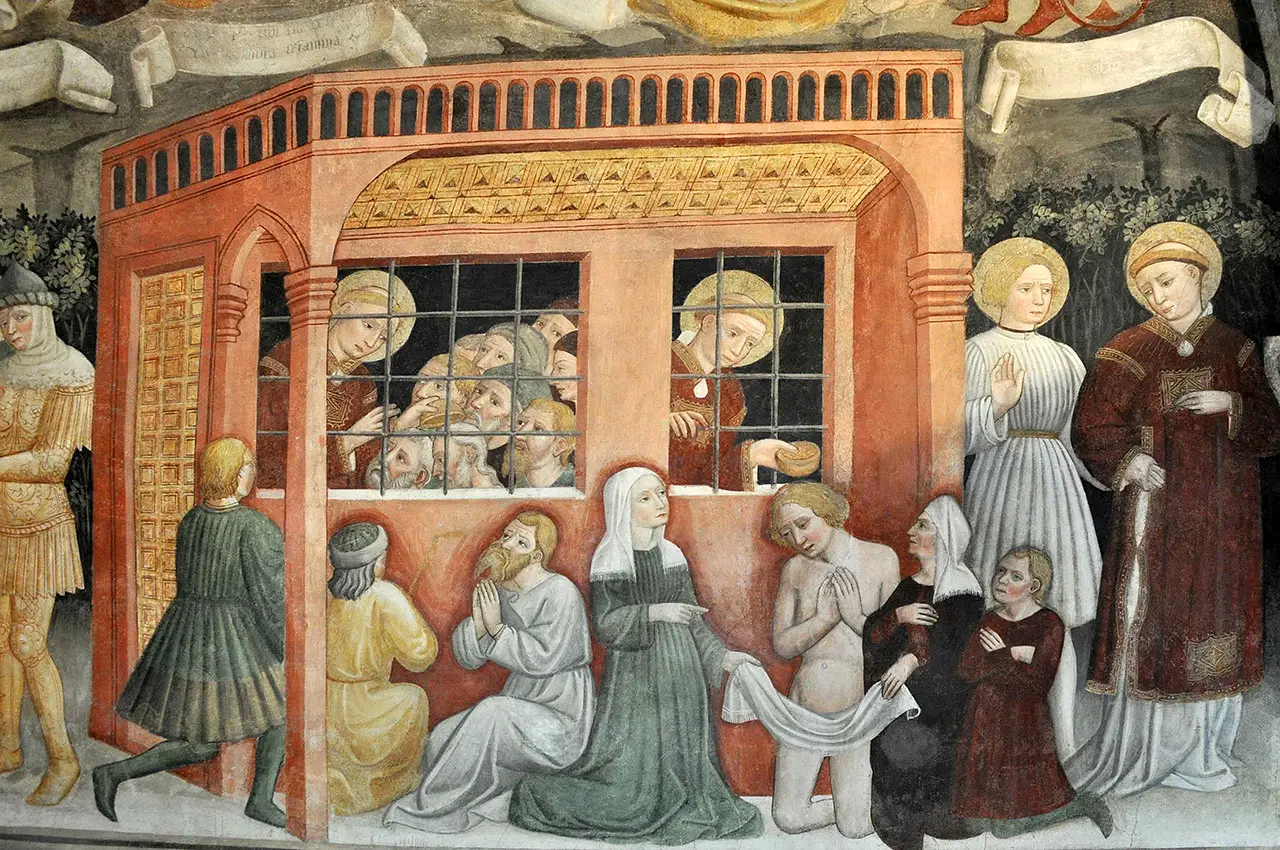SHARRYLAND


On the walls of Serravalle, the Oratory of the Battuti
Rendezvous at the Clock Tower to discover a small wonder of Gothic painting.



Where is

What it is and where it is
The Oratory of the Battuti is located close to the medieval walls of the village of Serravalle near the door that was its southern entrance, now replaced by the 19th-century Clock Tower. A seemingly insignificant doorway instead introduces one to a jaw-dropping sight, a palimpsest of sacred painting with a Nordic flavor.
Why it is special
The interior of the Oratory is decorated with a striking cycle of frescoes, painted in the third decade of the 15th century by artists referable to the so-called "Gothic-devotional painting." The paintings depict: a splendid Crucifixion, on the high altar; Stories of St. Lawrence and Stories of St. Mark, along the walls: the four Evangelists and Doctors of the Church, on the vaults of the two bays.
Not to be missed
Among the details worth mentioning is the figure of St. Augusta, patron saint of Serravalle, depicted with the symbolic palm of martyrdom: between history and legend, she is said to have been the daughter of the Visigoth king Matrucco who, devoted to Odin, hindered her faith in Christ, accompanied by miraculous events, until the tragic epilogue, passing through terrible trials: the pincers, the wheel and the fire until the sword that put an end to her earthly suffering.
A bit of history
The Oratory of Saints Lawrence and Mark was erected by the Confraternity of Saint Mary of the Battuti, officially established in 1313. It was named after the fact that its members, among other penitential practices, performed a public procession during which they scourged themselves with a bundle of cords ending in knots. The confraternity was a lay organization dedicated to assisting the needy in material terms at the adjacent hospital and in spiritual terms at the chapel.
Trivia
Over the centuries the oratory has gone through various vicissitudes, the most glaring of which was in 1797 its use as a field kitchen during the occupation of Napoleon's troops, a mortifying circumstance that nevertheless did not affect its consistency. Far more serious consequences occurred in the following century, however, with the loss of part of the interior decoration, when the last bay was demolished for the construction of the adjacent Clock Tower.
Enter the Map of Italy's Undiscovered Wonders and find treasures where you least expect it... Inspire, Recommend, Share...
Collections
The Map thanks:
Enter the Map of Italy's Undiscovered Wonders and find treasures where you least expect it... Inspire, Recommend, Share...
Where is

Collections


